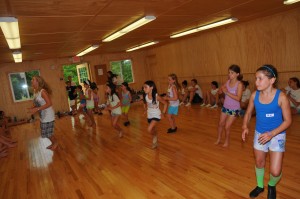
If you’re already planning and excited about next summer, you’re not alone. You’re one of the many campers who make going away to camp a part of their summer experience year after year. Here are 8 reasons why you’re already looking forward to summer 2017:
- You get to see old friends- When asked, most campers say seeing old friends is the #1 reason they are excited to get back to camp. Social media, texting, emails and phone calls throughout the year are great, but there is nothing like after a busy school year reconnecting with old friends!
- Campfires- there is something about the singing crickets, the crackling of the fire, good friends all around, S’mores on the fire, and those whacky, silly campfire songs that make summer camp so much fun.
- Outdoor Adventures- more than likely, you don’t live in a place where you can easily access an impressive ropes course or mountain biking trails, or the chance to go camping in the mountains. At camp, you have access to all of these adventures just steps from your cabin.
- Freedom- You’ve worked so hard all year to get good grades, contribute around the house, participate in sports and other afterschool activities, that summer camp is a nice break from all of those responsibilities. At camp, you’re free to relax!
- Special Events- from pool parties and talent shows, to laser tag and MTV night, campers are always excited about special events! You never really know what to expect with these special events, all you know is that it’s going to be awesome and it’ll be a night you won’t soon forget!
- Reconnecting with Nature- when you leave camp, it can feel kind of weird to spend the next few months sitting in a classroom, or coming home to sit and play video games. Camp gives you a new appreciation for the outdoors, and being outside all of the time becomes a part of who you are. Many campers are excited to breathe the fresh mountain air, cannonball into the refreshing lake, and experience quiet time with nature throughout camp.
- The Food- Even at the best schools, cafeteria food is still cafeteria food, and can get boring after a while. Thankfully, coming to camp means you have a wide variety of food options to choose from, and all of it is delicious! Remember the breakfast sandwiches? Remember the ice cream sundaes? Remember the cookouts? Healthy and delicious options are always available for bust, hungry campers!
- The Traditions- if next summer will be your first summer as a repeat camper, you have something really exciting waiting for you! Your time as the new camper is over, and now you’re a P-R-O! You already have a hang of the traditions, the rituals, the songs and customs that happen at camp. You now have the opportunity to teach the new campers! If this is your third or fourth summer returning to camp, you know that even though there are some things that stay the same, every camp experience is new and different and exciting!
It’s not too early to start counting down the days until summer 2017. It’ll be here before you know it, and you’ll be packing your bags and heading back to one of your favorite places on the planet. There is so much to look forward to, and these are just SOME of the many reasons kids are already so excited to get back to camp! Why are you pumped about getting back to camp?








